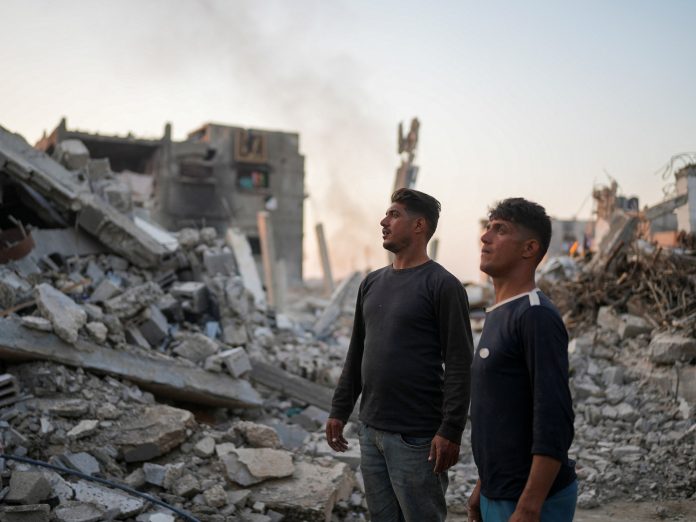Government Media Office says securing temporary shelters is the ‘most pressing’ humanitarian need in Gaza.
Local authorities in the Gaza Strip have urged donors and aid groups to prioritize sending tents and temporary shelters to help house people whose homes have been destroyed by Israel.
The Gaza Government Media Office stated on Monday that thousands of Palestinian families in the enclave are currently sleeping outdoors in the cold temperatures.
“Securing shelters has become an urgent humanitarian need that cannot be postponed. It is the most pressing need at this time,” the office emphasized in a statement.
They called on the Jordan Hashemite Charity Organisation to include tents in the upcoming aid shipments along with food and other supplies.
Hundreds of thousands of Palestinians have returned to the northern part of the territory following the truce between Israel and Hamas last month.
However, many have found their homes destroyed as Israel razed entire neighborhoods in Gaza City and northern towns like Jabalia and Beit Hanoon.
The Government Media Office later accused Israel of impeding the aid and shelter flow into the territory, violating the ceasefire treaty that came into effect on January 19.
They stated that the agreement requires 60,000 trailers and 200,000 tents to enter Gaza to assist homeless Palestinians. Also, the deal includes allowing equipment to clear rubble to reach Gaza.
“But the Israeli occupation is hindering and delaying the agreement’s implementation, exacerbating the humanitarian crisis and the civilians’ suffering in the Gaza Strip,” they added.
Later on Tuesday, World Food Programme official Antoine Renard reported an increase in aid to Gaza but mentioned ongoing Israeli restrictions, especially on items with dual civilian and military use.
United States President Donald Trump’s proposal of displacing Gaza’s entire population was met with rejection from Arab states, who viewed it as ethnic cleansing.
During Trump’s meeting with Israeli Prime Minister Benjamin Netanyahu on Tuesday, concerns were raised about the ceasefire’s sustainability.
The initial 42-day truce, with the release of Israeli captives and Palestinian prisoners, ends on March 1. The second stage, full Israeli troop withdrawal from Gaza and captive release, is yet to be finalized.
Trump expressed uncertainty about the peace’s longevity and the resumption of hostilities. Ofer Cassif, an Israeli parliament member critical of Israel’s treatment of Palestinians, highlighted the lack of progress on the ceasefire’s second stage.
Since the conflict began in October 2023, Israel has reported nearly 62,000 Palestinian deaths, including many missing and presumed deceased.






